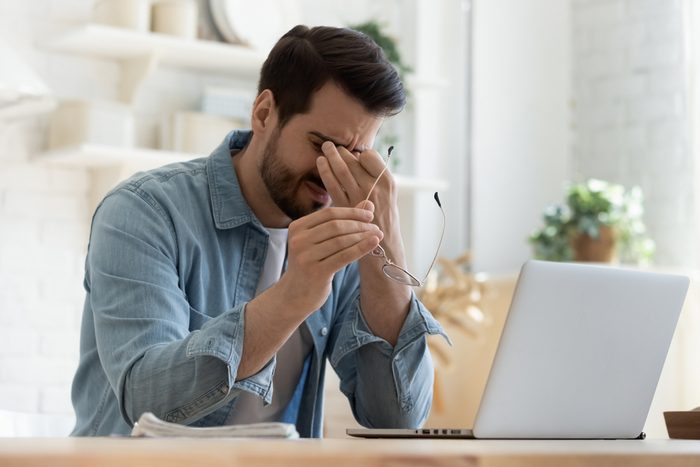Does Intermittent Fasting Make You Tired?
Written by Andrew Brewer. ⚕️Reviewed and fact checked by our medical team.
Intermittent fasting can sure take a toll on our bodies. It’s a drastic change to what we might be used to and transitioning to a new normal is never easy. There are some side effects that you should be aware of when starting with intermittent fasting. Headaches, dehydration, malnutrition, bloating, etc. If you’re not taking care of yourself, these effects can get the best of you.
But why am I so tired? Intermittent fasting can indeed cause fatigue and tiredness, but what is the reason behind this? Many new intermittent fasters experience a strange combination of fatigue mixed with the inability to fall asleep. The root cause of these two issues could be something easily fixed by you! Here is a look at intermittent fasting fatigue and how it could affect you.
Key Takeaways
- Intermittent fasting can cause fatigue and tiredness due to low energy levels caused by decreased food intake.
- The transitional periods between fasting and eating are crucial, and overeating or bingeing can cause fatigue and other issues.
- To avoid or alleviate intermittent fasting fatigue, eat healthy foods, stay hydrated, exercise moderately, prepare for sleep, and ease into and out of fasting periods.
Low Energy Levels
The most likely reason for your fatigue is because your body is low on energy. Whether this is due to your body getting used to intermittent fasting, or because you may be overdoing it, the lowered amount of food in your system causes an energy shortage. When your body has less food to process from the day, it has less energy to power you causing tiredness and fatigue.
Getting started with intermittent fasting can be difficult on the body as it’s not used to such low levels of consumption. When you lower the food intake and decrease the energy production in your body, you’re bound to experience some drastic levels of fatigue. Take care of yourself while fasting and be sure to drink plenty of liquids to provide your system with a bit of energy.
If you’re looking to gain back energy during the fast, there are a few things you can try. Your first option is to wait it out. The fatigue will pass and your body will get used to intermittent fasting in time. Another option is to exercise. By standing up and walking or providing your body with intervals of moderate-intensity workouts, you could be able to gain back some energy.
The Transitional Periods Are Key
One of the most important parts of intermittent fasting is the in-between phase of fasting and eating. When your body is transitioning from hours of fasting into a window of eating, it can be tough on your system. That’s why most intermittent fasting experts recommend easing in and out of the fasting period. Overeating can cause bloating, cramps, and fatigue.
Once your intermittent fasting period ends, it can be tempting to stuff yourself with food. Bingeing after fasting is the best way to hurt your system and damage the process. Overeating can lead to levels of fatigue and will wear out the body rather quickly. When your eating window opens, ease your body back into eating with gentle foods and nutrient-packed drinks.
The same mentality should be applied to the end of your eating window as well. Ease your body out of eating with gentle snacks. Ending your eating window with a meal can cause your body to struggle at first with the fasting period.
Avoiding Intermittent Fasting Fatigue
Eating healthy throughout your day will help reduce fatigue and support the body through the fasting window. When you fill yourself with healthy food packed with necessary nutrients and quality calories, your body will have much more energy to work with while fasting. If you only eat junk food throughout your eating window, your body won’t have any reserve energy to work with.
Preparing your body for sleep is also quite important for reducing fatigue. The early stages of intermittent fasting can disrupt your sleep schedule leaving you tired when you wake up. Many intermittent fasters will prepare, hours in advance, their body for bed to help guarantee a better night’s sleep. Some medications also help with insomnia caused by intermittent fasting.
Don’t forget to check our recommended 10 best intermittent fasting apps to make your intermittent fasting journey easier.
FAQ
-
Does intermittent fasting make you tired?
Some people may experience fatigue or tiredness when they first start intermittent fasting, but this is typically a temporary side effect that goes away as the body adjusts to the new eating schedule.
-
Why do some people feel tired during intermittent fasting?
When you restrict food intake, your body may struggle to adapt to the new energy source. This can cause feelings of fatigue or tiredness. Additionally, dehydration and low blood sugar levels can also contribute to feelings of tiredness.
-
How long does it take for the body to adjust to intermittent fasting?
It can take a few days to weeks for the body to adjust to intermittent fasting. During this time, you may experience fatigue or other side effects.
-
Are there any tips for avoiding tiredness during intermittent fasting?
Yes, staying hydrated, consuming enough calories during your eating windows, and gradually easing into intermittent fasting can all help reduce feelings of tiredness.
-
Can intermittent fasting lead to long-term fatigue or other health problems?
Intermittent fasting is generally considered safe for most people. However, if you experience persistent fatigue or other health problems, you must talk to your doctor to rule out any underlying medical conditions.
